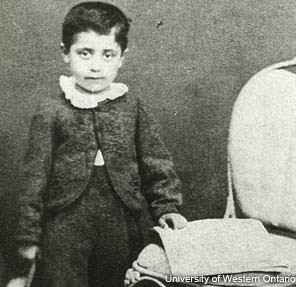 “Minors of the Majors” invites you to discover compositions by the great classical composers that for one reason or another have not reached the musical mainstream. Please enjoy, and keep listening!
“Minors of the Majors” invites you to discover compositions by the great classical composers that for one reason or another have not reached the musical mainstream. Please enjoy, and keep listening!
Gustav Mahler, son of an aspiring tavern proprietor and a soap-maker’s daughter, was considered a Wunderkind! At age four, he discovered his grandparent’s piano, and he gave his first public performance at the town theatre in Iglau at age 10. A thriving military and trade center within the Austro-Hungarian Empire, the town was home to an amateur orchestra, a professional theatre, an opera and the church of St. Jakob, each richly contributing to the musical life of the community. Since Iglau was also a major staging point for the Austrian army, colorful military bands regularly participated in local festivals and engaged in concert activities. The memories of these musical impressions—alongside the stunning natural beauty of the Moravian countryside—would haunt Mahler for the rest of his life and dynamically reverberate in his compositions. To further his musical education, Mahler enrolled at the Vienna Conservatory. He took piano lessons from Julius Epstein, and studied composition and harmony under Robert Fuchs and Franz Krenn. Mahler left the Conservatory in 1878 with a diploma, but without the coveted and prestigious silver medal given for outstanding achievement. Although he claimed to have written hundreds of songs, several theatrical works and various chamber music compositions, a single movement for a Piano Quartet in A minor survived the ravages of time.
Composed in 1876, and awarded the Conservatory Prize, the movement is strongly influenced by the musical styles of Robert Schumann and Johannes Brahms. Conveying a sense of passion and longing, Mahler presents three contrasting themes within a strict formal design. The opening theme possesses an ominous and foreboding character, while the contrasting second—still in the tonic key—is passionately rhapsodic. To compensate for this tonal stagnation, the third theme undergoes a series of modulations. Thickly textured and relying on excessive motific manipulation, this movement nevertheless provides insight into the creative processes of the 16-year-old Mahler.
Gustav Mahler: Piano Quartet in A Minor
You May Also Like
- Minors of the Majors
Francis Poulenc: Sonata for Trumpet, Horn and Trombone, Op.33 Jean Cocteau magnanimously announced in 1918, that his principal goal was the elimination of all foreign and specifically German elements from French music and culture. - Minors of the Majors
Franz Liszt: Cantantibus organis The 1860’s were not particularly kind to Franz Liszt. For one, the Tsar of Russia successfully blocked his long-awaited marriage to the Princess Carolyne Sayn-Wittgenstein. - Minors of the Majors
Gioacchino Rossini: 3 Choeurs Religieux In 1829, Gioachino Rossini (1792-1868) completed his thirty-fourth opera, William Tell. - Minors of the Majors
Antonio Vivaldi: Sonata in G minor, Op. 14, No. 9, RV 42 The musical estate of Antonio Vivaldi (1675-1741) contains a vast collection of original manuscripts.
More Anecdotes
- Bach Babies in Music
Regina Susanna Bach (1742-1809) Learn about Bach's youngest surviving child - Bach Babies in Music
Johanna Carolina Bach (1737-81) Discover how family and crisis intersected in Bach's world - Bach Babies in Music
Johann Christian Bach (1735-1782) From Soho to the royal court: Johann Christian Bach's London success story - A Tour of Boston, 1924
Vernon Duke’s Homage to Boston Listen to pianist Scott Dunn bring this musical postcard to life
